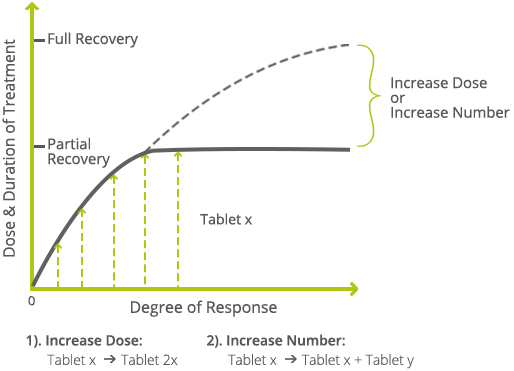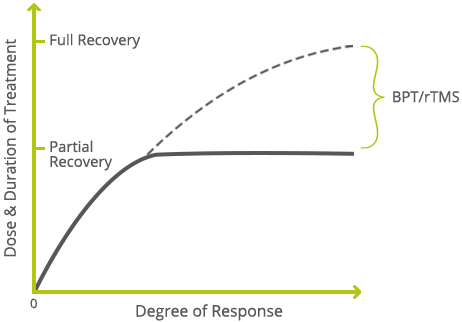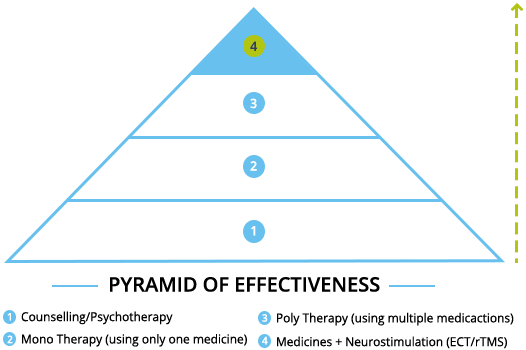Patients with Severe Depression, reports sadness of mood, loss of energy and happiness, irritability, sleep and diet disturbances, suicidal thoughts and behaviors.
Not all the above-mentioned symptoms respond equally to treatment. Even with adequate treatment, some symptoms might persist.
Such patients are either known as “Treatment Resistant” with a plateaued response to medications.






